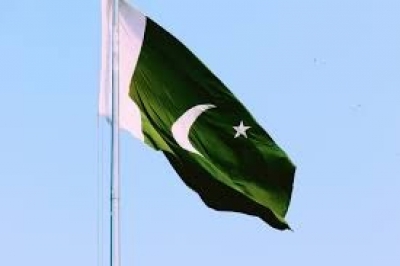By Amjad Ayub Mirza
Top Inter-Services-Intelligence (ISI) officer Brigadier Mustafa Kamal was gunned down along with four other Pakistan army soldiers by Tehreek-e-Taliban Pakistan in Angoor Adda in South Waziristan bordering Afghanistan.
Several Pakistan army personnel are being killed every day in the Southwestern province of Balochistan by Baloch Liberation Army, Baloch Liberation Front, Baloch National Army, Baloch Republican Guards and other militant organisations fighting for the liberation of their occupied country from the clutches of Pakistan.
In Sindh, the Sindhudesh Revolutionary army is targeting military installations, railway tracks and security forces.
In Punjab, PTI workers of Imran Khan are confronting the Punjab police and rangers and forcing all sections of the state to back off from any attempt to arrest Khan.
In Pakistan-occupied Jammu and Kashmir and occupied Gilgit-Baltistan (PoJK-GB), the situation is no different.
Every single day, people from different sections of society are on the roads protesting against shortages of flour and wheat, load-shedding, non-payment of salaries, forcefully cutting the salaries of government servants, non-payments of pensions, lack of health and education facilities, etc.
There is not a single sector of economy, political activity or social life in PoJK-GB that has not suffered at the hands of the occupying Pakistan military and the state of Pakistan.
Recently, a long march was conducted by youths of PoJK from Rawalakot to Titrinote crossing point on the Line of Control. While speeches were being delivered against Pakistani occupation and their Jihadi proxies, three men jumped onto the stage and snatched the microphone from the speaker.
They then fled the scene firing shots from pistols and warning of serious consequences if the protest continued to target Pakistan of Jihadi organisations. The organiser of the event say that the attackers were from a local Jihadi outfit.
This is testimony to the fact that Pakistan will use its Jihadi proxies in PoJK-GB to counter attempts by the locals to fight Pakistani occupation.
It also shows that Pakistan has a well-structured Jihadi network in all major cities of PoJK-GB that are acting as a fascist force to tackle any local movement that raises the desire to rejoin Mother India.
However, it will not be an easy task for Pakistan to succeed in its vicious design. The reason is simple. National question in both PoJK-GB is a burning issue in the context of both territories being occupied by Pakistan.
Religion will play no role to dilute the struggle for reunification of these territories with Mother India. The creation of Bangladesh is testimony to the fact that national liberation sentiment is by far stronger than religious sentiment.
Therefore, clashes between Jihadist and nationalist seems imminent leading to Civil War in all parts of the PoJK-GB. Once this happens, Pakistan will be truly engulfed in a multi-front Civil War further leading towards the disintegration of the state.
The ongoing militancy in Khyber Paktoonkhawa, Sindh, Balochistan and the unrest in PoJK-GB is an indication of non-resolvable political, economic and above all nationalistic contradictions that can only be resolved by the liberation of all oppressed nations living under the occupation of the state of Pakistan and its armies.
The disintegration of Pakistan as a state and the break-up of its military power will lead to the dismantling of the terrorist industry, thriving at the moment, and bring peace to the region and the rest of the world.
Dr Amjad Ayub Mirza is an author and a human rights activist from Mirpur in PoJK. He currently lives in exile in the UK.
–IANS
amjad/uk/





